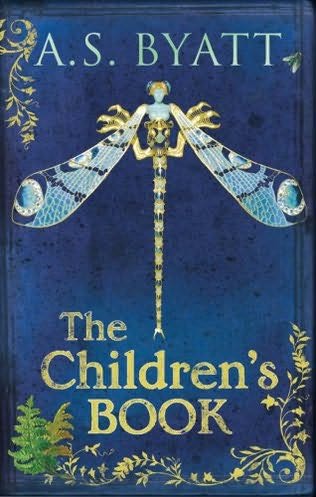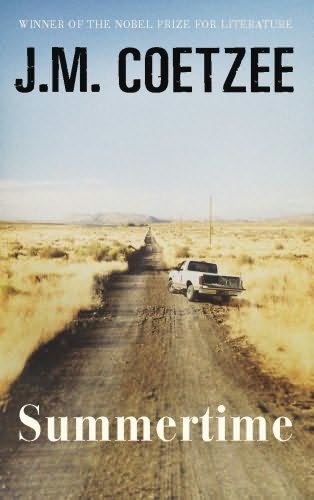 The Booker Prize Longlist
The Booker Prize Longlist
Oh shit -- who's got a quarter in their ear? Is it you, England? Ha ha ha! Go ahead, England: keep the quarter, but don't tell your mom.
Anyway, here's England's most important novels this year. I haven't read any of these, but based on the descriptions, I'm rooting for Sarah Waters' ghost story "The Little Stranger" to win, although JM Coetzee's fan fiction about himself will probably take home the prize.
***
AS Byatt, "The Children's Book," Bertelsmann, 688 pages

"As the novel opens in 1895, Olive Wellwood seems the model New Woman: popular author of books that reinvent fairy tales for contemporary children, tolerant wife to Fabian Society stalwart Humphry, devoted mother pregnant with her seventh baby. She takes in a working-class boy who longs to make art, and connects him with a master potter whose family belongs to the Wellwoods' progressive, artistic circle. As the narrative unfolds, we see the dark side of these idealists' lives. . . . The gothic sexual interconnections [among the characters] recall Bloomsbury, and Olive is clearly a gloss on E. Nesbit, but this is no mere roman a clef. Byatt's concern is the vast area where utopian visions collide with human nature..." -- Kirkus Reviews
JM Coetzee, "Summertime," Bertelsmann, 224 pages

"A young English biographer is working on a book about the late writer, John Coetzee. He plans to focus on the years from 1972-1977 when Coetzee, in his thirties, is sharing a run-down cottage in the suburbs of Cape Town with his widowed father. This, the biographer senses, is the period when he was 'finding his feet as a writer'. Never having met Coetzee, he embarks on a series of interviews with people who were important to him - a married woman with whom he had an affair, his favourite cousin Margot, a Brazilian dancer whose daughter had English lessons with him, former friends and colleagues. From their testimony emerges a portrait of the young Coetzee as an awkward, bookish individual with little talent for opening himself to others. Within the family he is regarded as an outsider, someone who tried to flee the tribe and has now returned, chastened. His insistence on doing manual work, his long hair and beard, rumours that he writes poetry evoke nothing but suspicion in the South Africa of the time." -- Amazon Product Description
Adam Foulds, "The Quickening Maze," Bertelsmann, 272 pages
"Foulds's second novel, The Quickening Maze, concerns John Clare, the "Northamptonshire peasant poet" now respected as a pre-eminent writer of the 19th century. The nature poems of this working-class autodidact were acclaimed in Clare's young adulthood, but their proceeds fed his alcoholism. Clare's literary style then grew unfashionable, his personal style erratic. When the novel begins, the poet has just been incarcerated in what was, for the 1840s, a progressive institution called High Beach Private Asylum. While we're not sure at first âÂÂ" Clare's separation from the forests and wildlife that inspire his rural poetry seems initially a terrible injustice âÂÂ" in short order we're left in no doubt: Clare is mad." -- Telegraph UK
Sarah Hall, "How to Paint a Dead Man," Verlagsgruppe Georg von Holtzbrinck, 320 pages

"Two of the strands take place in Umbria in the 1960s. A renowned Italian painter, having roared through life as a lion, now finds his footsteps moving inexorably towards death. In parallel with his decline runs the delicate, ecstatic story of Teresa, a young flower seller in the same village, whose creeping blindness opens up a seam of inner vision while exposing her to the predatory dangers of the world outside. The other two strands are set 40 or so years later in contemporary Britain. Northern artist Peter Caldicutt, once a student correspondent of the famous artist and now a successful sculptor, is striding through messy middle age, while his daughter Suse (the nearest the novel comes to a central character) is in London reeling from shock and grief at the death of her twin brother." -- The Guardian
Samantha Harvey, "The Wilderness," Bertelsmann, 384 pages

"There's Jake Jameson, 65, on the brink of retirement, utterly disoriented, zooming around above the moors and peat bogs of Lincolnshire, having been given the gift of a private plane ride that he really, profoundly, doesn't want to take. From the air, the reader glimpses many of the things that have made up Jake's life: a prison, for instance, that he built -- he's an architect -- and is inordinately proud of, although the pilot thinks it's a blight upon the land. And beautiful Quail Woods, which bad men seem to be cutting down, although, in flashbacks, it seems as if Quail Woods has been taking hits for the past 30 years. Jake can't remember, of course. His Alzheimer's is pretty advanced, and we can learn of his life only in patchwork, in Woolfian waves of partial recognition." -- The Washington Post
James Lever, "Me Cheeta," News Corporation, 336 pages

"Me Cheeta is a truly terrible idea for a book: the cover is lousy, the first chapter lame, the entire conceit of a memoir written by a chimpanzee - Cheeta from the Tarzan films and the oldest chimp alive - stomach-churningly cute. And, as it turns out, it's also the best celebrity memoir you'll read this year, and it's not even a memoir. Or only ostensibly: it's actually a rather joyous satire on Hollywood's Golden Age, with Cheeta its simian F Scott Fitzgerald." -- The Guardian
Hilary Mantel, "Wolf Hall," News Corporation, 560 Pages

"Mantel picks an unlikely hero âÂÂ" Thomas Cromwell âÂÂ" and reconfigures him. Cromwell's reputation, the man responsible for the Reformation, is dark. Yet Mantel shows him as learned, wry, tolerant, calculating. Cromwell is self-taught, self-made. From the boy bloody beneath his father's boot he rises to become the king's most trusted advisor...Pitched against him âÂÂ" another bold move âÂÂ" is Thomas More: fanatical, snobbish, chilly. Cromwell's household bursts with children whom he educates but never whips, and a wife he treats as an equal. The Lord Chancellor, conversely, humiliates his family. Cromwell, who as a child witnessed the burning of a Lollard, has sympathy for Tyndale's followers while More practically turns the rack himself when it comes to heretics. More wants utopia; Cromwell fits snugly into the world as it is." -- The Independent
Simon Mawer, "The Glass Room," Lagardere, 416 pages

"Wealthy Jewish car manufacturer Viktor Landauer and his gentile wife Liesel have been made a gift of land by Liesel's parents to build their own house. "Something good and solid," Liesel's father advises. But Viktor doesn't want something good and solid: what he wants is something modern. And what he gets is a modernist masterpiece, Der Glasraum, the Glass Room...The Glass Room is not merely a piece of architecture within the book: it is the architecture of the book. All the characters interact with and within the house in some way; all plot revelations take place within its shimmering walls; history doesn't take place outside it, it comes to it. Abandoned by the fleeing Landauers, the Glass Room is taken over by the Nazis for scientific experiments, and then claimed by the communists, before becoming a museum, and the site for a final scene of recognition and redemption." -- The Guardian
Ed O'Loughlin, "Not Untrue & Not Unkind," Pearson, 288 pages

"A newspaper editor called Cartwright is found dead. One of his colleagues, Owen Simmons, discovers a dossier on Cartwright's desk, and in it, Owen finds a photograph which brings him back to a dusty road in Africa and to the woman he once loved. Not Untrue and Not Unkind is Owen's story. It is a story of friendship, rivalry and guild amongst a group of reporters and photographers covering Africa's wars. Ed O'Loughlin's own experience working as a foreign correspondent in Africa has led to a story with real depth that gives readers a good perspective of what it is like to be a journalist and how the news is reported." -- "Tomorrow's Schools Today"
James Scudamore, "Heliopolis," Bertelsmann, 278 pages

"Ludo links the two worlds of Sao Paulo - the gated, guarded communities of its super-wealthy, the favelas of its poor - having been plucked from the favela by supermarket millionaire Ze Generoso as a young child. A larger-than-life national figure, Ze moves Ludo and his mother to his weekend farm, where she becomes the cook, in what will ostensibly be a Trading Places-style experiment. Ludo's narrative neatly straddles two story lines, delivered in alternating chapters. The first, in flashback, relates his youth on the farm, where he becomes ever more involved in his wealthy patron's family; taken back to the city as an adopted teenage son, he gets embroiled in a quasi-incestuous affair with their well-groomed daughter. The other details his present-day life as a 27-year-old executive in an ad agency in the city." -- The Guardian
Colm Toibin, "Brooklyn," Pearson, 272 pages
"Eilis Lacey is from a small town in Ireland where she is great with numbers but can't find a bookkeeping job anywhere due to the poor economy after World War II. Her older brothers have already left for England to find work, leaving Eilis's older sister, Rose, to support Eilis and their widowed mother. That is, until an Irish priest from Brooklyn, Father Flood, offers to sponsor Eilis in America. Knowing there isn't much opportunity in her hometown, she makes the difficult move across the Atlantic where she goes to college at night, works at a department store during the day and eventually falls in love with an Italian boy with a big family." -- The Orlando Sentinel
William Trevor, "Love and Summer," Pearson, 240 pages

"It's summer and nothing much is happening in Rathmoye. So it doesn't go unnoticed when a dark-haired stranger appears on his bicycle and begins photographing the mourners at Mrs Connulty's funeral. Florian Kilderry couldn't know that the Connultys were said to own half the town; and, in any case, he had come to Rathmoye only to see the scorched remains of the cinema. But Mrs Connulty's daughter, liberated at last by the death of her imperious mother, resolves to keep an eye on Florian Kilderry, and it's she who comes to witness the events that follow. A few miles out in the country a farmer called Dillahan lives with the knowledge that he was accidentally responsible for the deaths of his wife and baby. He has married again: Ellie is the young convent girl who came to work for him when he was widowed. But she falls in love with Florian and though he plans to leave Ireland, a dangerously reckless attachment develops between them. In a characteristically masterly way Trevor evokes the passions and frustrations felt by Ellie and Florian, and by the people of a small Irish town during one long summer." -- Waterstones
Sarah Waters, "The Little Stranger," Lagardere, 480 pages

"Our lens on the world is Dr Faraday, the son of a shopkeeper and a former Hundreds nursemaid. He is a kindly self-made man, eking out a lonely middle age and afraid that his meagre livelihood will be threatened by the National Health Service. He is called out to Hundreds to examine a sick maid, and met by the young son of the house, Roddie Ayres, who explains that he and his family don't much bother with doctors: "But I gather that neglecting the servants is a capital offence these days." Faraday clocks the tone, but also the war-wounded leg which he offers to treat for free. He is keen to try out a new form of electrical therapy, and to write up the results for a medical journal. Roddie is sceptical, but his sister and mother are not, and before long, Faraday has become a trusted friend of the family. Roddie begins to suffer visitations from an evil spirit, which he blames for his increasing inability to keep the estate in order, as well as for a mysterious fire in his room. Faraday is swift to diagnose mental breakdown: the son of the house is sent to a private asylum and the balding family doctor is soon paying court to the plain daughter. Mrs Ayres, grand and girlish, is not thrilled at the prospect of the match, but then she begins to lose her marbles, too." -- Telegraph UK
Posted by miracle on Wed, 29 Jul 2009 08:28:39 -0400 -- permanent link




